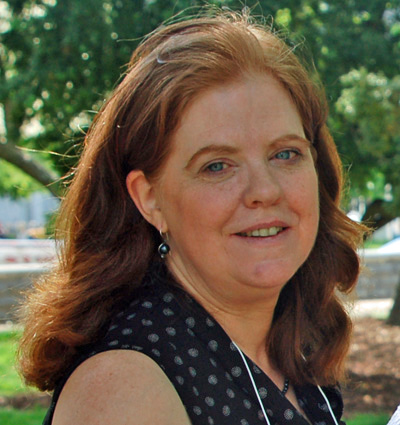We are proud to announce the launch of the CREATIVE CARE COUNCIL! LEARN MORE
We are proud to announce the launch of the CREATIVE CARE COUNCIL! LEARN MORE

By Peg Ankney
Reprinted with the permission of the Direct Care Alliance
About a month ago, DCA’s Jessica Brill Ortiz invited me to attend a March 25 advocacy day in Washington DC. The day was organized by Caring Across Generations, a movement of family members, workers, and others advocating for a system of quality, dignified care.
I did some work with Caring Across last year through DCA, which is a member of their leadership team. I was impressed by their ethics and the work they are doing to improve our long-term care system, for both consumers and workers.
I wanted to visit the Capitol because of what I have already been experiencing in my state of Pennsylvania–and I am definitely not alone.
I’ve been a direct care worker for almost 40 years, 25 of them in home care. During the past 10 years I have witnessed a critical depletion in my workforce as demand grows. Because our senior population is living longer, there’s been a huge increase in the need for direct care workers who are passionate as well as compassionate, but too many of the trainees I see coming into the field have no heart for the profession. Instead, they see it only as something to pay the bills, or a stepping stone to something “better,” like a career as a nurse.
For me, working in home care is a true passion. Our seniors have worked hard to build their homes and raise their families with pride and dignity. Being able to stay in their homes, if they can do so with some outside assistance, is a huge boost to their quality of life, allowing them to stay in familiar surroundings, retain as much control as possible, and stay involved in familiar daily activities. But having someone trained to check in and help with everyday tasks like making a meal, bathing and dressing—and to break up the day with a friendly visit—can mean the difference between living and just existing.
These types of services exist, but many seniors cannot afford them. What’s more, it’s getting harder to find the direct care workers we need to deliver those services. Low wages, poor benefits, irregular working hours and other obstacles make it hard for most people to commit to this profession for as long as I have. Fortunately, our government can help make things better.
One of the aims of the Caring Across advocacy day was urging support for innovations at the state level to improve long-term care. Twenty-three states were represented in our vast group during our training session, but I was one of only two or three direct care workers.
Everyone shared stories about issues within their own states, many of which were duplicated over and over. One state that has made monumental advances in the field is Hawaii, which has a strong culture that encourages people to care for their family members. An advocate from Hawaii reported on their rapidly growing senior population and how they are handling the situation.
My visits to the Hill included the offices of Senator Casey (D-PA), Senator Durbin (D-IL) and Senator McCaskill (D-MO). We went in groups of four or five to speak to each senator’s staff, sharing our stories, telling them about some national trends and statistics, and explaining about the Caring Across campaign.
We also had some specific requests for the senators, including asking them to support a federal bill that we hope will be introduced soon. The bill would set up a fund to support state innovations to improve home and community-based care—including making sure home care jobs are quality jobs.
There were no promises, but we got a lot of positive feedback.
It felt good to be part of this advocacy day for my field and my profession. I hope more of my fellow direct care workers will join us next time. We need to continue to make these visits and make our voices heard.
As for me, I’ll keep speaking up for this profession I love.